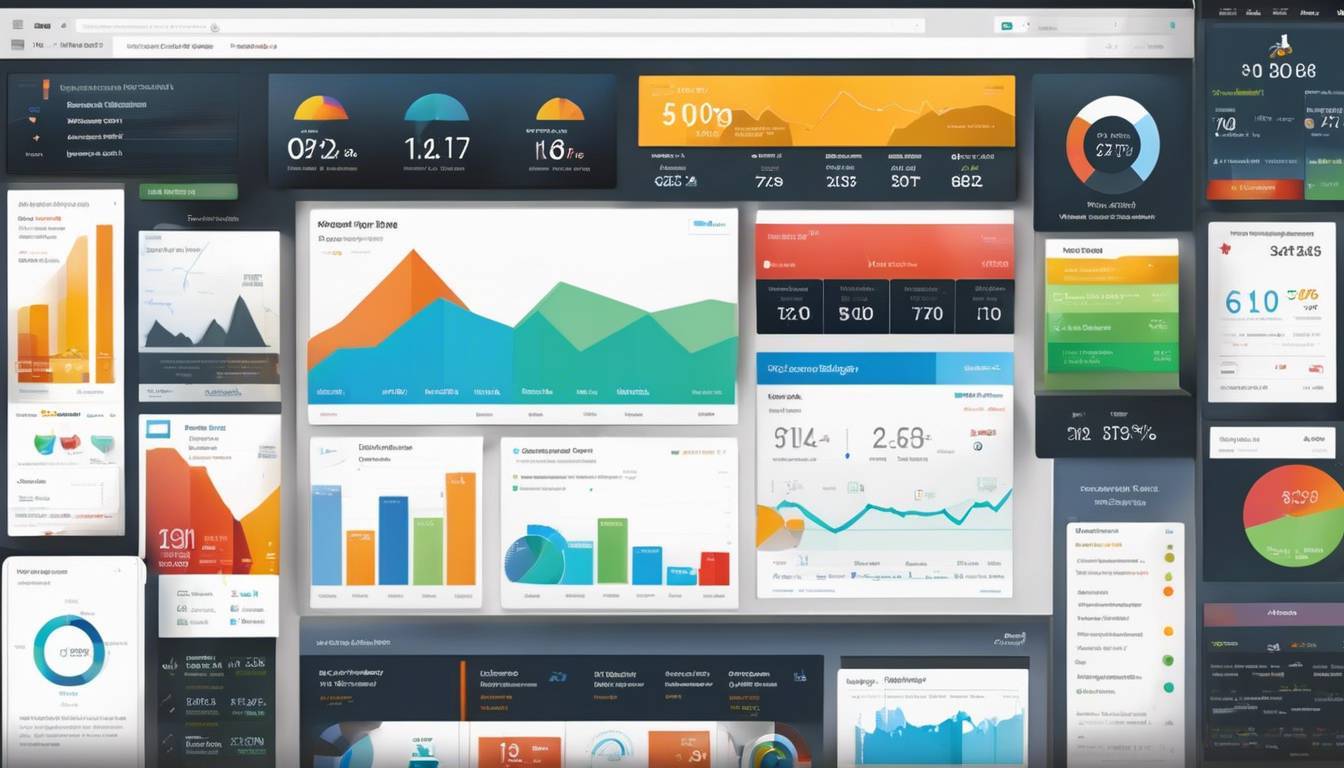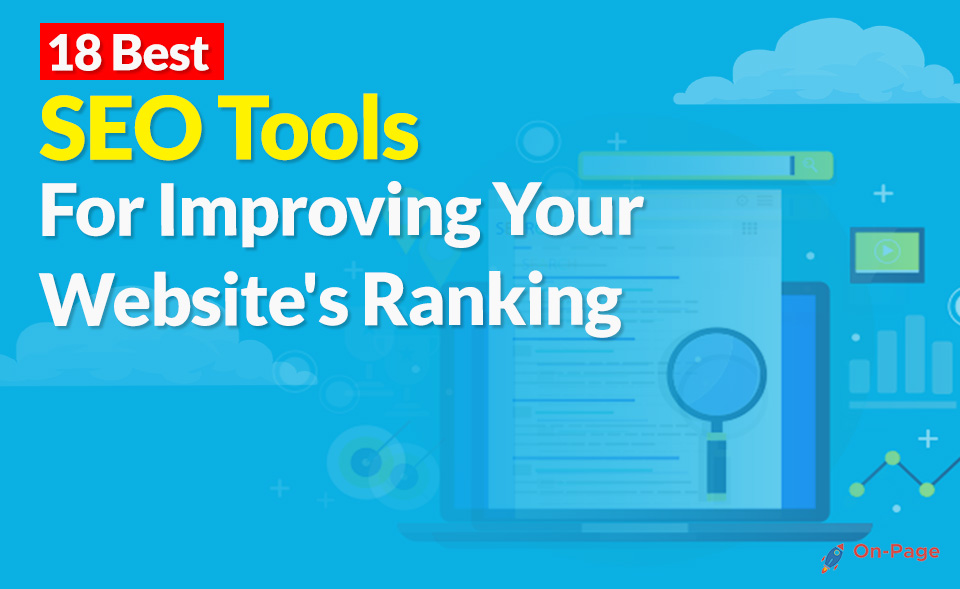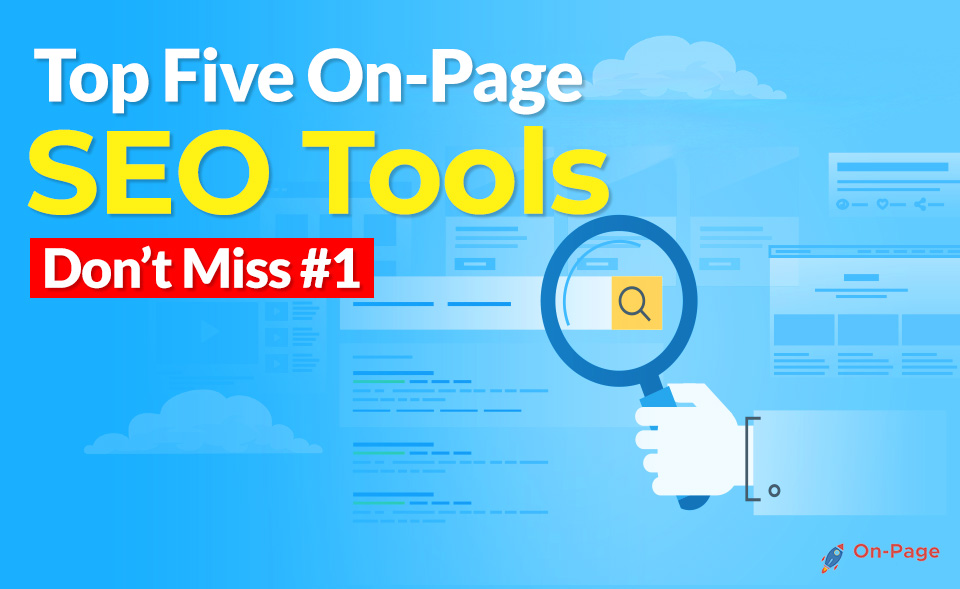SERP tools act as invaluable assistants in optimizing your website. They unfold insights into keyword rankings and traffic data, painting an accurate picture of your site’s search engine standings. Moreover, these tools go beyond number-crunching by extending a hand into competitor analysis, letting you peek into their playbook. Such knowledge means power – the power to boost visibility, attract visitors and drive conversions. Dive in, and discover.
Our SERP Snippet Optimization Tool offers effective features to craft compelling page titles and meta descriptions, enhancing the appeal of your listings in Google’s organic search results. With this tool, you can strategically construct page titles and meta descriptions to maximize click-through rates and increase organic search engine traffic.
Understanding SERP Tools
Imagine a SERP tool as virtual glasses that help you see your website’s performance on search engines more clearly. It’s like having a personal assistant that tells you what your potential audience is interested in, what your competitors are doing, and where you stand in the digital marketplace. These tools give you detailed insights about how your website is performing on search engine results pages. They help you keep a close eye on various aspects such as keyword rankings, organic traffic trends, click-through rates, and even competitor data.
SERP tools are not just about delivering information; they are about empowering you to make informed decisions and take strategic actions to enhance your website’s performance. They put a spotlight on areas that need improvement, opportunities for growth, and insight into what your target audience is looking for. By providing these vital details, these tools are key drivers in the process of enhancing your site’s online visibility and ultimately increasing traffic and conversions.
For instance, by tracking keyword rankings over time, you can observe which keywords are driving the most traffic to your site and identify opportunities to optimize for new keywords. This allows you to fine-tune your content and SEO strategies to align with the interests of your target audience.
In addition to this, competitive analysis is another crucial feature of SERP tools. Understanding how well your competitors are performing in search results can help you adjust your own strategy to stay ahead in the game. By leveraging this data, you can uncover insights into the tactics that are working for others in your industry and use it to inform your approach.
We’ve explored some features of SERP tools that help shape marketing strategies and boost search engine visibility. Now it’s time to take a closer look at how these tools provide valuable data and offer actionable insights to optimize website performance.
Advantages of Utilizing SERP Tools
The benefits of using SERP tools extend well beyond simplifying the monitoring of keyword rankings. These tools offer a wealth of advantages that can significantly impact your website’s performance and enhance your SEO strategy. Let’s delve into some of the key advantages in detail:
Performance Monitoring
One of the primary advantages lies in the ability to accurately monitor keyword rankings and track changes in performance over time. By providing actionable data on how specific keywords are performing, SERP tools empower you to make informed decisions and adjust your SEO strategy accordingly. This proactive approach enables you to identify trends, understand the impact of algorithm updates, and optimize your content for better search engine rankings.
Competitor Analysis
Beyond tracking your own performance, SERP tools are invaluable for analyzing competitor strategies. They provide insights into your competitors’ keyword strategies and their positions in search engine results pages (SERPs). This competitive analysis helps you identify opportunities and threats, allowing you to refine your SEO approach and stay ahead in the digital landscape. By understanding what works for your competitors, you can adapt your strategies to gain a competitive edge while avoiding potential pitfalls.
Content Optimization
In addition to performance monitoring and competitor analysis, SERP tools offer valuable insights into which keywords are driving organic traffic to your website. With this information at your fingertips, you can optimize your content to target high-performing keywords effectively. These tools often provide detailed suggestions for improving search engine rankings, making it easier for you to align your content with user search intent and enhance overall discoverability.
By leveraging these advantages, businesses and marketers can elevate their SEO efforts, drive targeted traffic, outperform competitors, and continuously optimize their online presence for maximum visibility and engagement.
Armed with a thorough understanding of the advantages offered by SERP tools, we can now shift our focus to unraveling the operational mechanisms that drive these indispensable tools forward.
Operational Mechanisms of SERP Tools
SERP tools are intricate systems that provide a wealth of data and insights crucial for optimizing website performance. Let’s take a closer look at the specific operational mechanisms that make these tools so valuable: keyword tracking, SERP feature analysis, and backlink analysis.
Keyword Tracking
One of the primary functions of SERP tools is to monitor the ranking position of specific keywords. This involves continuously tracking the performance of chosen keywords in search engine results pages (SERPs). By providing historical data on keyword rankings, these tools enable users to track trends and changes in performance over time. With this information, digital marketers and website owners can effectively evaluate the effectiveness of their SEO strategies and adjust them as needed to improve visibility and organic traffic.
For instance, a company may want to track how well their website ranks for the keyword “organic skin care products.” Using a SERP tool, they can monitor fluctuations in ranking positions, identify specific pages that perform well for this keyword, and gain insight into their competitors’ performance for the same keyword.
SERP Feature Analysis
In addition to keyword tracking, SERP tools also play a vital role in identifying and analyzing different search result features. These features include local packs, featured snippets, knowledge panels, and other rich snippets that appear in search results. Understanding how a website appears in various SERP features is essential for optimizing content to maximize visibility and click-through rates.
For example, let’s say a business wants to analyze how its product pages are displayed in relevant featured snippets. Using a SERP tool, they can gain insights into which product descriptions are more likely to appear as featured snippets, thereby tailoring their content to increase the likelihood of being featured prominently in search results.
Backlink Analysis
Moreover, some advanced SERP tools include backlink analysis capabilities. Backlinks are crucial for SEO performance, as they signal to search engines that a website is reputable and authoritative. By assessing both the quantity and quality of backlinks, these tools provide actionable insights for improving link-building strategies and understanding the link profile of a website.
Backlink analysis is a critical component of off-page SEO efforts aimed at enhancing a website’s authority and trustworthiness in the eyes of search engines.
In summary, the operational mechanisms of SERP tools encompass a wide range of functionalities instrumental in elevating a website’s SEO performance. These capabilities empower digital marketers and webmasters with actionable data to refine their strategies and achieve meaningful improvements in search engine visibility and user engagement.
Selecting the Ideal SERP Tool
Choosing the right SERP tool can be a game-changer for your website’s SEO strategy. As you navigate the vast landscape of SEO tools, it’s essential to weigh several key factors before making a decision.
Features and Functionality
The first consideration when selecting a SERP tool is evaluating the range of features it offers. Look for tools that provide comprehensive functionality such as keyword tracking, competitor analysis, and robust reporting capabilities. These features are vital for gaining insights into your website’s performance and optimizing your content effectively. A good SERP tool should offer advanced features like rank tracking, backlink analysis, and keyword research to elevate your SEO efforts.
It’s crucial to match the tool’s offerings with your specific requirements. For instance, if you’re focused on local SEO, ensure that the tool provides robust local search tracking and analytics capabilities. By carefully assessing the features and functionality of each tool, you can pinpoint the one that aligns best with your SEO objectives.
User Interface and Experience
In addition to features, evaluating the user interface and experience is equally important. The tool’s usability plays a significant role in your day-to-day workflow. A cluttered or complex interface could hamper productivity and lead to confusion, while an intuitive and streamlined UI can enhance efficiency and streamline your optimization process.
As you research different SERP tools, take advantage of free trials or demo versions to test their user interface. Look for user-friendly dashboards, customizable reports, and intuitive navigation that make data interpretation and decision-making more accessible. Considering the technical proficiency of your team is also essential—ensuring that the selected tool aligns with their skillset can minimize training time and facilitate seamless adoption.
Pricing and Scalability
Finally, consider the pricing structure and scalability of each SERP tool. Evaluate how the pricing aligns with your budget and whether it provides suitable flexibility to accommodate future business growth.
Some tools offer tiered subscription plans with varying feature sets, allowing you to scale up as your SEO needs expand. Others may charge based on usage or offer customizable enterprise solutions tailored to larger organizations. It’s essential to choose a tool whose pricing model aligns with your current financial capacity while providing room for future expansion without significant financial strain.
With these considerations in mind, let’s proceed by comparing popular SERP tools against these critical selection criteria to help you make an informed decision based on your unique requirements.
Essential Criteria for a Top-notch SERP Tool
When evaluating a search engine results page (SERP) tool, accuracy is priority number one. Without accurate and up-to-date data on keyword rankings and search performance, your SEO efforts may be misguided.
Accurate Data
Accurate data ensures that you are making decisions based on reliable information. Look for a tool that not only provides real-time data but also has a history of consistent accuracy. This will enable you to make informed decisions about which keywords to focus on and how to adjust your SEO strategy over time.
Imagine driving with an unreliable GPS system that constantly leads you in the wrong direction; it would be counterproductive. Similarly, relying on inaccurate SEO data can result in wasted time and effort, as well as missed opportunities for growth.
Actionable Insights
A top-notch SERP tool doesn’t just stop at providing data; it should also offer actionable insights and recommendations. These insights should be based on the data it provides, helping you to identify areas for improvement in your SEO strategies.
Think of it like having a knowledgeable SEO expert by your side, pointing out specific opportunities and potential pitfalls in your website’s performance.
Technical Support
Access to reliable customer support and resources is essential when using any tool, including a SERP tool. Look for a tool that offers comprehensive technical support and guidance for troubleshooting issues that may arise.
Consider the frustration of encountering a problem with your tool and being unable to find help or clarification. Reliable technical support ensures that any issues can be addressed promptly so that you can continue optimizing your website without unnecessary delays.
In summary, a top-notch SERP tool provides accurate, actionable insights backed by reliable technical support—a combination that is essential for maximizing the effectiveness of your SEO efforts.
Leading Competitors in the SERP Tools Market
The competition is fierce when it comes to SERP tools. A few standout tools have become household names within the digital marketing community. Ahrefs, with its powerhouse suite of tools for backlink analysis and competitive intelligence, has made a lasting impression. SEMrush has claimed its stake as an all-in-one marketing toolkit, boasting features that cover SEO, PPC, content, social media, and competitive research. Not to be overshadowed, Moz has earned a reputation for providing robust SEO solutions that cater to businesses of all sizes. And then there’s SE Ranking, offering an all-encompassing SEO toolkit that includes rank tracking, website analysis, keyword suggestions, competitor tracking, and more.
Each tool brings its unique spin on what makes a SERP tool effective. Ahrefs shines with its exceptionally detailed backlink analysis and keyword research capabilities. Not only does it take a close look at your own backlink profile but also analyzes the linking profiles of your competitors, giving you valuable insights into their strategies.
On the other hand, SEMrush stands out for its incredible depth of data across various digital marketing channels. From keyword research to PPC campaigns and social media analytics, it’s a one-stop-shop for comprehensive digital marketing insights. It’s particularly helpful when you need to get an overall picture of your online visibility and compare it to that of your competitors.
Moz‘s enduring popularity stems from its suite of tools designed especially for small businesses and newcomers to SEO. Its user-friendly interface coupled with powerful features like on-page audits and keyword tracking makes it an attractive option for those looking to establish a strong online presence.
Lastly, SE Ranking’s claim to fame is its in-depth rank tracking capabilities which allow users to monitor their website’s performance across multiple search engines and locations. This tool also provides insightful suggestions for improving keywords and optimizing content based on competitors’ strategies.
In essence, each of these competitors offers a diverse array of features tailored to different needs within the industry—ranging from in-depth backlink analysis and competitor research to full-fledged marketing toolkits that cover SEO, PPC advertising, and social media management. Whether you’re a seasoned digital marketer or just starting out, there’s undoubtedly a SERP tool out there that aligns with your specific requirements and business goals.
If you’re ready to take your SEO game to the next level with precision tools aimed at boosting website visibility and capturing organic traffic, Check out On-Page.ai.





